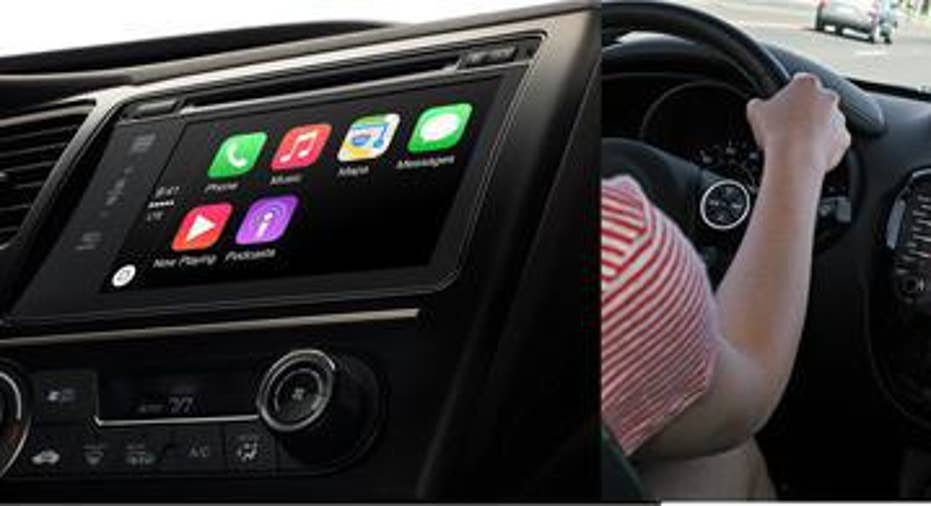Look Out Alphabet Inc, Here Come Microsoft Corporation's Driverless Cars

Microsoft and Zhejiang Geely 's Volvo recently announced a partnership to develop driverless vehicles and modernize the car buying process. The companies haven't revealed the exact details regarding their driverless cars yet, but Volvo has stated that it will start using Microsoft's HoloLens in showrooms to project digital overlays over real vehicles.
Volvo's Concept 26 driverless interior. Source: Volvo.
This partnership indicates that Microsoft is getting serious about connected and autonomous cars. Last April, it unveiled Windows in the Car, adashboard mirroring concept similar to Apple's (NASDAQ: AAPL) CarPlay and Alphabet's (NASDAQ: GOOG) (NASDAQ: GOOGL) Android Auto. It updated that concept with Cortana integration this September, but it still hasn't evolved into a fully developed platform. Meanwhile, Microsoft lost ground in embedded vehicle operating systems toBlackBerry's QNX.
What Microsoft and Volvo's partnership meansVolvo is a well-known brand, but it only controls 1% to 2% of the worldwide auto market. The company has already added basic autonomous features, like auto steering and following functions, to some newer models like the XC90. It also recently unveiled the "Concept 26" interior for its future driverless cars.
It's still unclear how Microsoft's software will be integrated into these vehicles, but the partnership with Volvo already represents more progress than Google has made. Google still hasn't secured any major automaker partnerships in its driverless push, but it established its own automaker, Google Auto, last year. Apple is rumored to be using a BMW frame for its long-rumored driverless car, but neither company has confirmed those reports.
Apple's CarPlay (L) and Google's Android Auto (R). Source: Company websites.
Microsoft faces a tough uphill battle in driverless cars due to its weakness in smartphones. Microsoft controls less than 3% of the global smartphone market, according to IDC, which prevents any Windows-based mirroring solutions from gaining ground against CarPlay and Android Auto.
Microsoft probably wants to expand its Windows 10 ecosystem to cars, but it will be difficult if CarPlay and Android Auto, which run "on top" of BlackBerry's QNX, become the dominant dashboards. This means that any driverless systems dependent on Apple or Google's ecosystems could cut Microsoft out of the loop.
Not all hope is lostMicrosoft still has a few tricks up its sleeve, however. The company previously partnered with Hewlett-Packard Enterprise to connect drivers to automakers via connected cars. HPE's Automotive Aftersales CX Management Solution, which is built on Microsoft's Dynamics CRM, delivers data from connected cars to automakers so that they can deliver personalized offers (like infotainment, concierge services, app downloads, and fuel services) to customers.
Expanding that foundation can encourage more automakers to connect their vehicles to Microsoft's cloud-based ecosystem. That data can also be extracted at the embedded OS level (where Microsoft and BlackBerry are dominant), instead of CarPlay and Android Auto's dashboard level.
Another issue is privacy. Several automakers have expressed concernsthat Google could turn driverless cars into data miners for targeted ads. That's probably why Audi, Daimler, and BMW agreed to buyNokia's HERE Maps unit in August. Like Google, HERE has been mapping out roads in "high detail" for driverless cars to navigate. But unlike Google, HERE has a fairly limited (and arguably less intrusive) advertising ecosystem. Microsoft, which isn't heavily dependent on advertising revenues, could exploit those privacy concerns about Google to partner with more automakers.
Market growth potentialMost companies believe that driverless cars will achieve mainstream adoption between 2020 and 2040. Research firm Boston Consulting Group estimates that sales of autonomous vehicle technologies could rise from nearly nothing today to $42 billion by 2025.
In this growing market, automakers will generate revenue by selling new cars with driverless features. Tech companies like Microsoft, Google, and Apple will profit by expanding their ecosystems into connected cars. Mobile leaders like Google and Apple have the upper hand in this battle, but Microsoft might unexpectedly secure automaker partnerships through its enterprise connections at a faster rate than either rival.
The article Look Out Alphabet Inc, Here Come Microsoft Corporation's Driverless Cars originally appeared on Fool.com.
Leo Sun has no position in any stocks mentioned. The Motley Fool owns shares of and recommends Alphabet (A shares), Alphabet (C shares), and Apple. The Motley Fool owns shares of Microsoft. Try any of our Foolish newsletter services free for 30 days. We Fools may not all hold the same opinions, but we all believe that considering a diverse range of insights makes us better investors. The Motley Fool has a disclosure policy.
Copyright 1995 - 2015 The Motley Fool, LLC. All rights reserved. The Motley Fool has a disclosure policy.



















